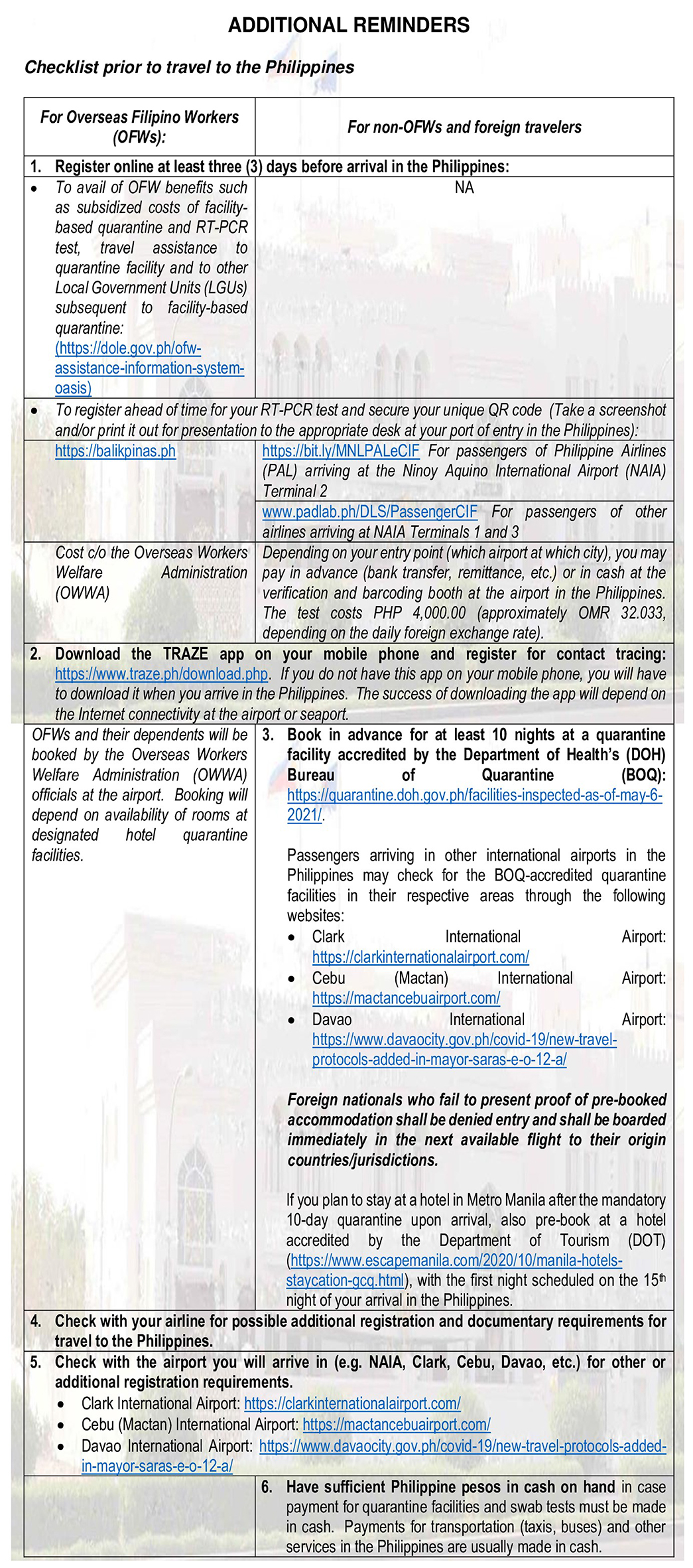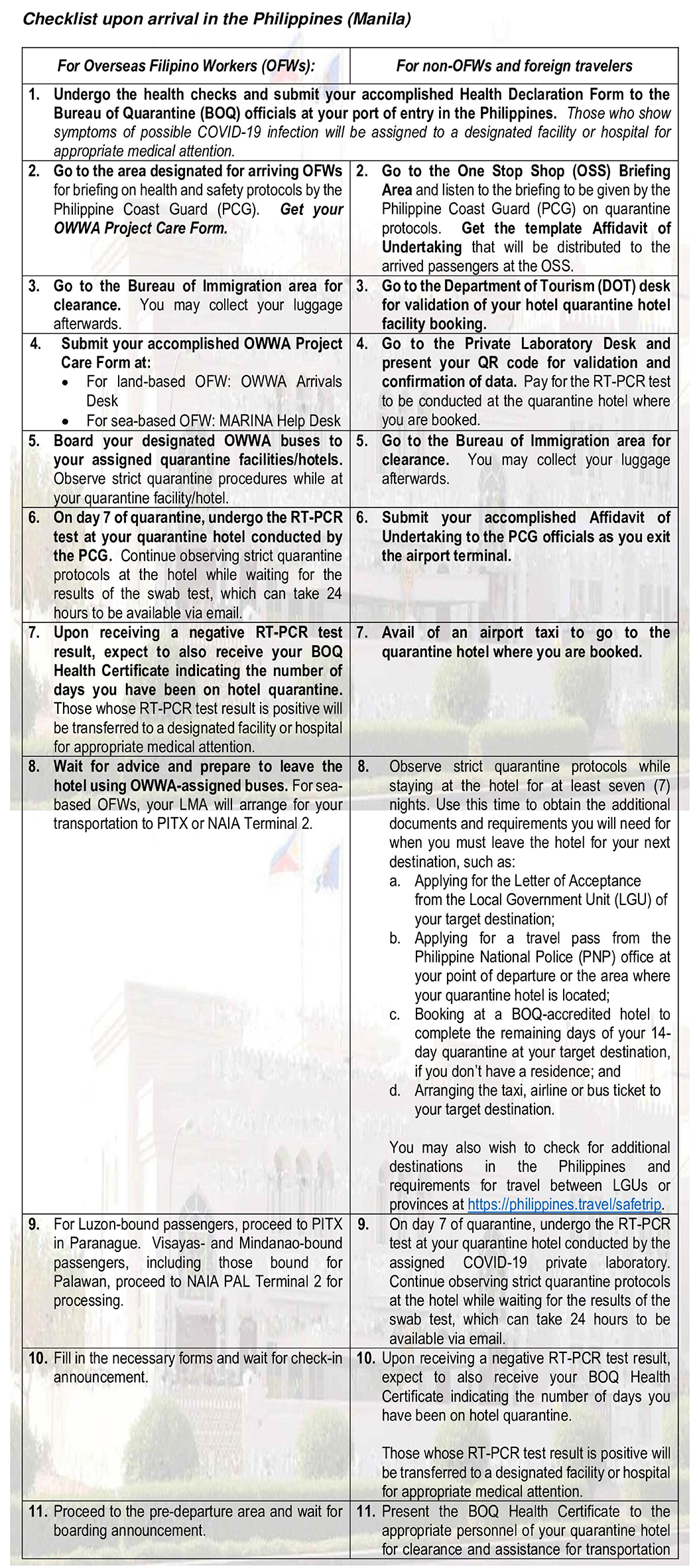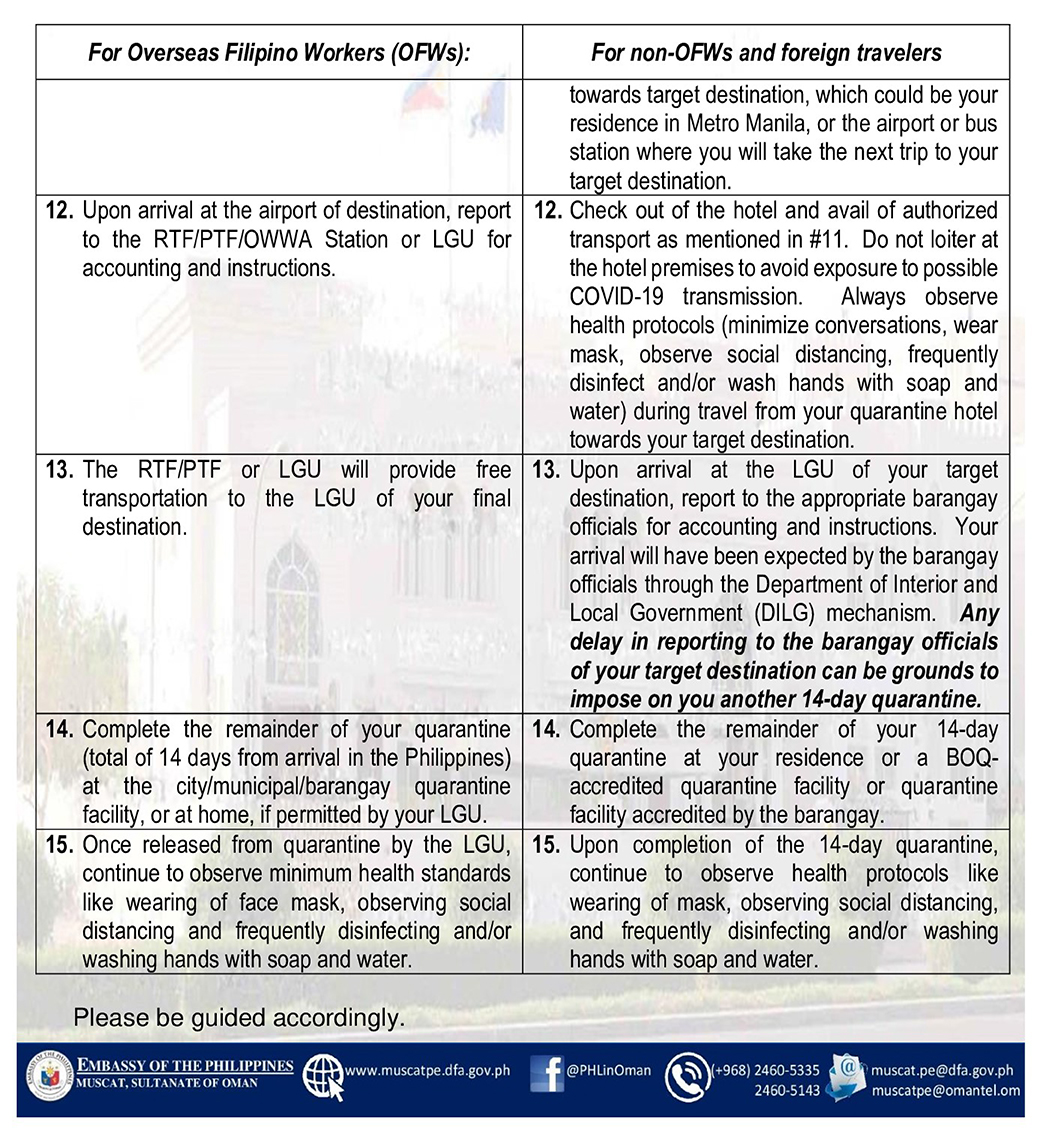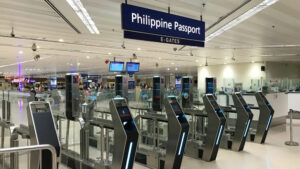The Philippine Embassy in Muscat has issued a public advisory regarding the updated arrival protocols for travel to the Philippines
The public is hereby advised that starting 8 May 2021, these arrival protocols will be observed for passengers arriving in the Philippines:
- All arriving passengers will undergo mandatory 14-day quarantine upon arrival.
- The first 10 days of the mandatory quarantine will be completed in a quarantine facility.
- Reverse transcription-polymerase chain reaction (RT-PCR) shall be conducted on arrived travelers on Day 7, with D1 being the day of arrival.
- After Day 10, the arrived passengers whose RT-PCR test results are negative will be allowed to observe the remaining 4 days of the quarantine period under home quarantine in their respective local government units of destination.
Reminders for travelers to the Philippines:
- All Filipino citizens will be allowed to enter the Philippines. However, until 14 May 2021, those with a travel history of having been in Bangladesh, India, Nepal, Pakistan, and Sri Lanka within the past 14 days prior to arrival in the Philippines will be required to undergo mandatory 14-day facility-based quarantine, notwithstanding a negative PR-PCR result.
- Non-Filipino travelers with a travel history of having been to Bangladesh, India, Nepal, Pakistan, and Sri Lanka within the past 14 days prior to arrival in the Philippines will not be allowed to enter the Philippines until 14 May 2021. However, those who have merely transited in any of these countries ( only stayed in the airport for connecting flight) will be allowed to enter the Philippines and not be subject to mandatory 14-day facility-based quarantine.
- Spouses and children (regardless of age) of Filipino citizens are allowed to enter the Philippines if they are traveling with the Filipino citizen on the same flight.
- Travelers qualified to avail of the Balikbayan program can enter the Philippines visafree, as long as they are citizens of countries with visa-free entry privilege (see https ://muscatpe.df a.gov.ph/consular-services/visa/general-information.):
- Spouse and children (regardless of age) of a Filipino citizen, provided they are traveling with the Filipino citizen;
- Former Filipino citizens, provided they can present to Philippine Immigration officials at the port of entry proof of former Philippine citizenship (e.g., old Philippine passport or copy of Philippine Birth Certificate, foreign naturalization papers, etc.);
- Spouse and children (regardless of age) of a former Filipino citizen, provided they are traveling with the former Filipino citizen;
- Qualified visa applicants (related by blood or affinity to a Filipino citizen) must submit the following additional documents with the visa application:
- Proof of relationship to a Filipino citizen If married to a Filipino citizen:
- Original Marriage Certificate issued by the Philippine Statistics Authority (PSA)( on security paper); or
- Original and copy of Report of Marriage (issued by a Philippine Embassy or Consulate), if married abroad; and
- Proof of Filipino citizenship of spouse (copy of Philippine passport or original PSA-issued Birth Certificate on security paper);
- If a child of a Filipino citizen:
- Apostilled Birth Certificate (English version or with English translation); and
- Proof of Filipino citizenship of at least one parent (Philippine passport or original PSA-issued Birth Certificate on security paper);
- Flight itinerary showing that the non-Filipino traveler will be on the same flight to the Philippines as the related Filipino citizen;
- Pre-booked accommodation for at least 7-8 nights at a quarantine hotel or facility accredited by the Department of Health’s (DOH) Bureau of Quarantine (BOQ): https://quarantine.doh.gov.ph/facilities-inspected-as-of-january-27-2021/.
- Bring additional documents indicated above (original PSA-issued documents and/or apostilled documents issued by foreign governments, and translated to English, if applicable) to present to Bureau of Immigration officials at the port of entry in the Philippines;







